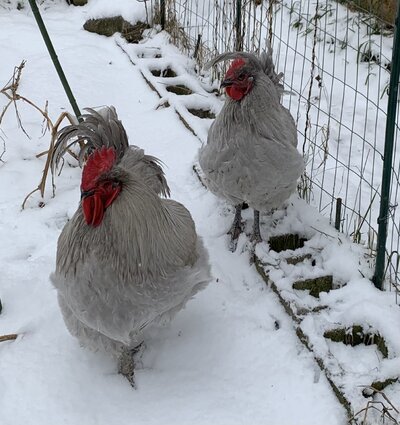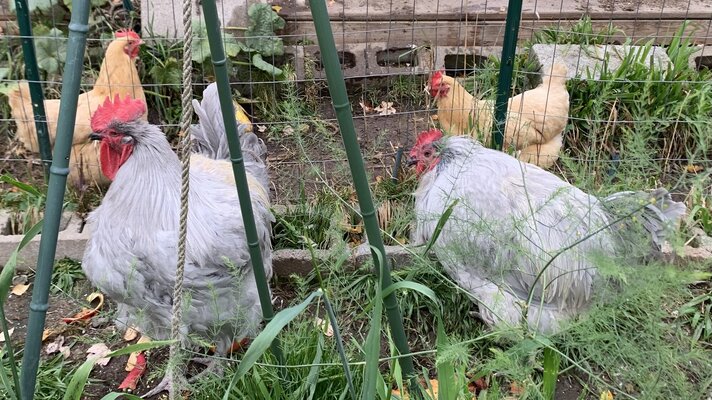CamTheChknKeeper
Songster
I put a much younger (1 year old) lavender Orpington roo in with my first guy last year; they squabbled and Very occasionally the older one (nearly 10 years old now) bullied the younger, but they both crowed and strutted etc especially in front of the hens’ pen next door.
This fall was the younger one’s first molt; and now that they have both begun to regrow their tails, there’s a very obvious difference between them!
The younger one seems to have changed some of their gender?? characteristics!
They don’t crow anymore and their tail feathers are growing out more like a hen than a roo.
The sounds he makes are sort of a very quiet chortle. Not resembling a crow at all.
Most surprisingly, the comb (on top of his head) is very much smaller!
It’s not injured at all, but the front of his comb is very reduced, as if it never developed; but before the molt he had just as big and long, many-pointed a comb as my older guy!
Also yes, my younger roo seems suddenly much more submissive to the older one.
Has anyone got any experience with this?? I’m really surprised by it.
PS here’s a picture from this past winter. The elder roo is closer to the camera
This fall was the younger one’s first molt; and now that they have both begun to regrow their tails, there’s a very obvious difference between them!
The younger one seems to have changed some of their gender?? characteristics!
They don’t crow anymore and their tail feathers are growing out more like a hen than a roo.
The sounds he makes are sort of a very quiet chortle. Not resembling a crow at all.
Most surprisingly, the comb (on top of his head) is very much smaller!
It’s not injured at all, but the front of his comb is very reduced, as if it never developed; but before the molt he had just as big and long, many-pointed a comb as my older guy!
Also yes, my younger roo seems suddenly much more submissive to the older one.
Has anyone got any experience with this?? I’m really surprised by it.
PS here’s a picture from this past winter. The elder roo is closer to the camera






